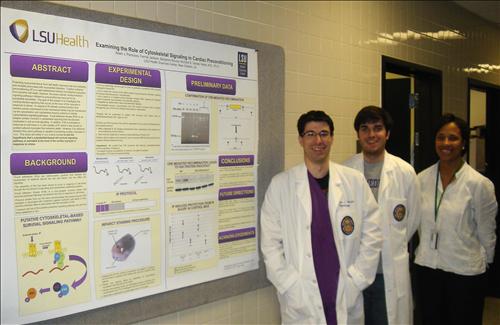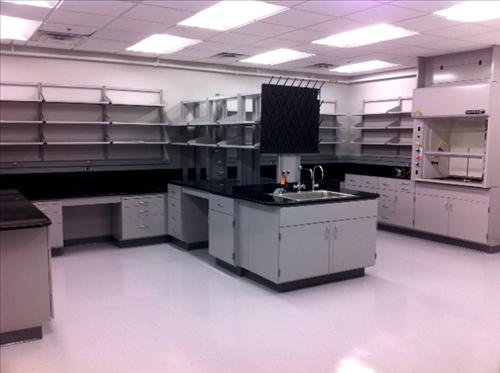Research
Research Programs
Pathobiology of Atherosclerosis and Heart Disease
The present program of atherosclerosis research in the LSUHSC department of Pathology
represents the latest stage of a continuum which began with the study of the natural
history of atherosclerosis in the mid 1950's. This initial study led to a series of
research projects from that time to-date: Community Pathology-New Orleans studies;
the International Atherosclerosis Project (IAP); the Natural and Experimental Atherosclerosis
program project; participation in several long-term epidemiological studies (The Oslo
Study, The Puerto Rico Heart Health Program, The Honolulu Heart Program, and the Bogalusa
Heart Study); studies with Japan, Mexico, Alaska, and Greenland; and the study of
Pathobiological Determinants of Atherosclerosis in Youth (PDAY).
Recently completed, the PDAY study was a multi-institutional study to document the natural history of atherosclerosis, its relationship to coronary heart disease risk factors, and the pathobiology of lesion development in young subjects (15-34 years) whose deaths were non-cardiovascular related (accidents, homicides, or suicides). Tissues from the over 3,000 study subjects (blacks, whites; males, females) are now archived at LSUHSC, providing a unique resource for research on the etiology and pathogenesis of atherosclerosis in youth for many years to come.
Cancer Research by Basic Scientists and Clinicians in the Department of Pathology
For years a large program of multi-disciplinary work focused on gastric carcinogenesis
and including molecular epidemiology studies of the role Helicobacter pylori, ascorbic
acid, nitric oxide, and ethnic as well as genetic determinants was conducted in this
department. While this program has had to be relocated due to Hurricane Katrina, many
of the investigators and techniques from this effort remain in the institution.
New investigators and collaborative research between basic science investigators in the Department of Pathology and clinicians in pathology and other departments have initiated translational research in prostate cancer, breast cancer, stomach cancer, melanoma, and other malignant neoplasms. Young, but experienced, basic science investigators have been recruited to the department in the recent past.
The Department of Pathology is establishing a COVID-19 Research Center to advance understanding of the role of SARS-CoV-2 in human disease.
Click here to see a listing of COVID-19 articles and publications by the department. |



